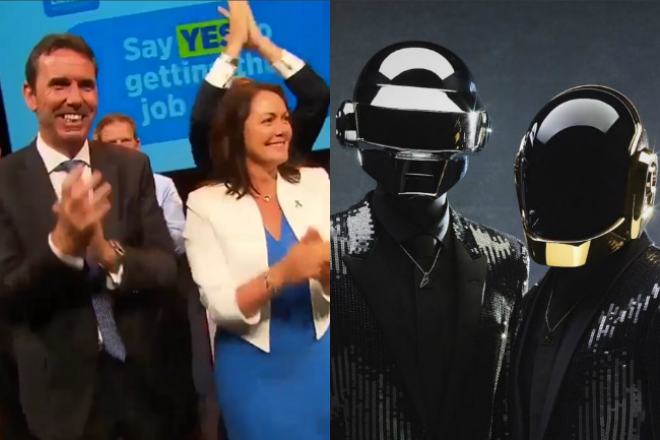This Leigh Sales Interview Perfectly Sums Up Why People Hate Politicians
"That's got nothing to do with what I just asked you."
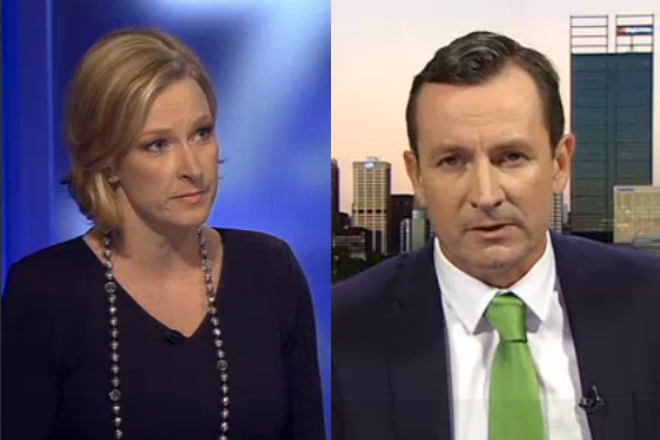
If you haven’t been paying much attention to the Western Australian election campaign, that is completely understandable. Outside of the controversial preference deal between the Liberal Party and One Nation and the time a bunch of Liberal MPs and candidates did a super awkward dance to Daft Punk’s ‘One More Time’, it hasn’t been the most exciting show in town (unless you live in Perth, in which case it probably is the most exciting show in town).
The WA election has, however, brought a lot of speculation that a range of minor parties — from Fluoride Free WA through to the Daylight Savings Party (yes, these are real parties) — could get elected thanks to a combination of preference deals and dissatisfaction with the major parties.
Last night on 7.30 the WA Labor leader Mark McGowan, who has a strong chance of being elected premier this weekend, gave a textbook example of why so many voters are sick of major party politics and turning to minor parties and independents. Despite being asked a number of specific questions by Leigh Sales, McGowan decided to respond almost entirely in boring and uninspiring political cliches.
Sales kicked off by asking about the rise of One Nation. “Pauline Hanson has a point doesn’t she? Many voters are disillusioned with the major parties. She thinks it’s because you’re not listening. What do you think’s driving it?” she asked.
“Just understand this,” McGowan replied, before launching into a scripted and well-rehearsed line. “One Nation has done a deal with the Liberal Party, so if you’re voting for One Nation that means you’re voting for Colin Barnett.”
Which has absolutely nothing to do with what Sales just asked him. In fact, Sales interrupted McGowan at that point by pointing out “That’s got nothing to do with what I just asked you”.
“No, but it’s an important point,” McGowan admitted. At least the first word in that sentence was correct, which is not bad for a politician.
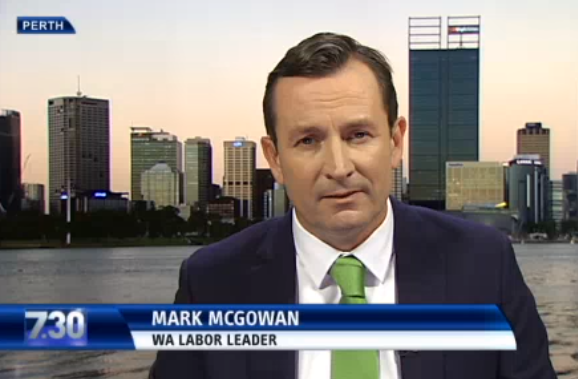
“Yep, fair cop, I totally dogged the question.”
But Sales wasn’t letting him off the hook. “It’s not just the Liberal and National voters who are looking to One Nation,” she pointed out. “Traditional working class voters who would have been previously attracted to Labor are also attracted to One Nation, so again I return to my original question: what is driving that in your view?”
“Minor parties have always been around and they’ve always attracted votes,” said McGowan. Which is another absolute non-answer. “My role as the leader of the Labor Party is to set out a comprehensive agenda for Western Australia and that’s we’ve done.” Cool story mate, but the question was about One Nation’s rapid political rise, which is a pretty important topic. If you’re so desperate to be seen as anti-One Nation you could at least attempt to answer it?
Sales was far from impressed, asking McGowan how he knew what to put in his “comprehensive agenda” if he “can’t articulate the issues that are driving people away from the major parties”.
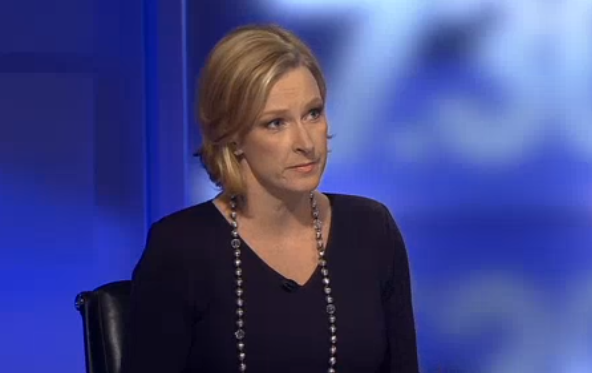
“Mate.”
“There’s always been minor parties which people go to, but just remember this: the only real alternative is Labor because One Nation and the Liberal Party are in an alliance this election”, answered McGowan. In case you missed it, that is not only a non-answer, but a garbled repetition of previous non-answers.
Sales was relentless: “I haven’t heard you say what you think are the issues that are causing people to look elsewhere.”
“Well I think people want some change in Western Australia. We’ve had eight and a half years of one premier and one government… people are looking for an alternative,” McGowan said, before repeating the mantra “If you support One Nation, you’re supporting the Liberals.”
We get it mate, you’ve been told to repeat “One Nation is in an alliance with the Liberals” over and over again because modern political strategy rests on the idea that you need to treat voters like morons and only speak to them in repetitive, bite-sized slogans devoid of any ideology or substance. We get it.
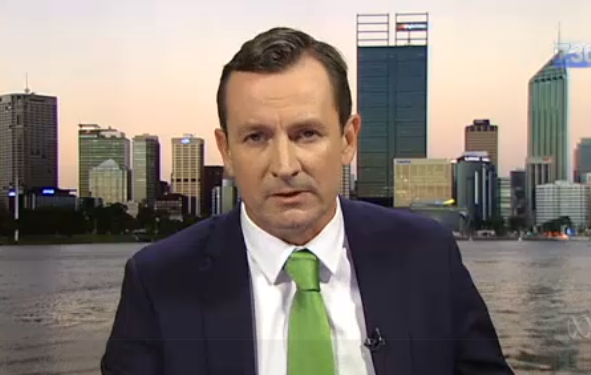
“No, I am absolutely not a robot. How dare you, Leigh.”
Sales then changed tack, focusing on a specific policy issue: the GST. Western Australian politicians regularly complain about the GST. They reckon they’re being robbed by the eastern states. WA Labor has called for the state’s share of the GST to increase from 30 cents in every dollar raised to 65 cents. Sales asked McGowan how voters can take him seriously given his strategy is based on “wishful thinking”.
Good question. After all, the GST carve-up is decided by the federal government, which is run by the Coalition. Why would a Labor premier for WA succeed where a Coalition one failed?
Here’s what McGowan said: “Well first of all the debt and deficit in Western Australia is the creation of Colin Barnett and the Liberal Party.”
Sales’ response? “Again, that’s not what I asked.”
The whole interview was a classic example of why so many Australians hate politics. Here’s a guy who is trying to gain the support of voters, presumably because he has some vision for the future of WA. But despite repeated opportunities to share his thoughts on the rise of the far-right and the sorts of issues that matter to ordinary people, he chooses to trot out cliche-riddled slogans instead.
It’s obvious his staff have been advising him to stick to the script. The election is only a few days away and the Labor Party is in a pretty good position, according to the latest polling. But the problem with this small-target, low-risk strategy is that it makes McGowan look like a soulless robot desperately trying to mimic a human but failing horribly because his designers forget to implement a personality chip that allows him to relate to normal people.
To cut McGowan some slack, he’s obviously not the only politician guilty of this approach. Most of them are. He just happened to give a classic example of how not to appear human and relatable last night.
–
You can watch the full interview here.
